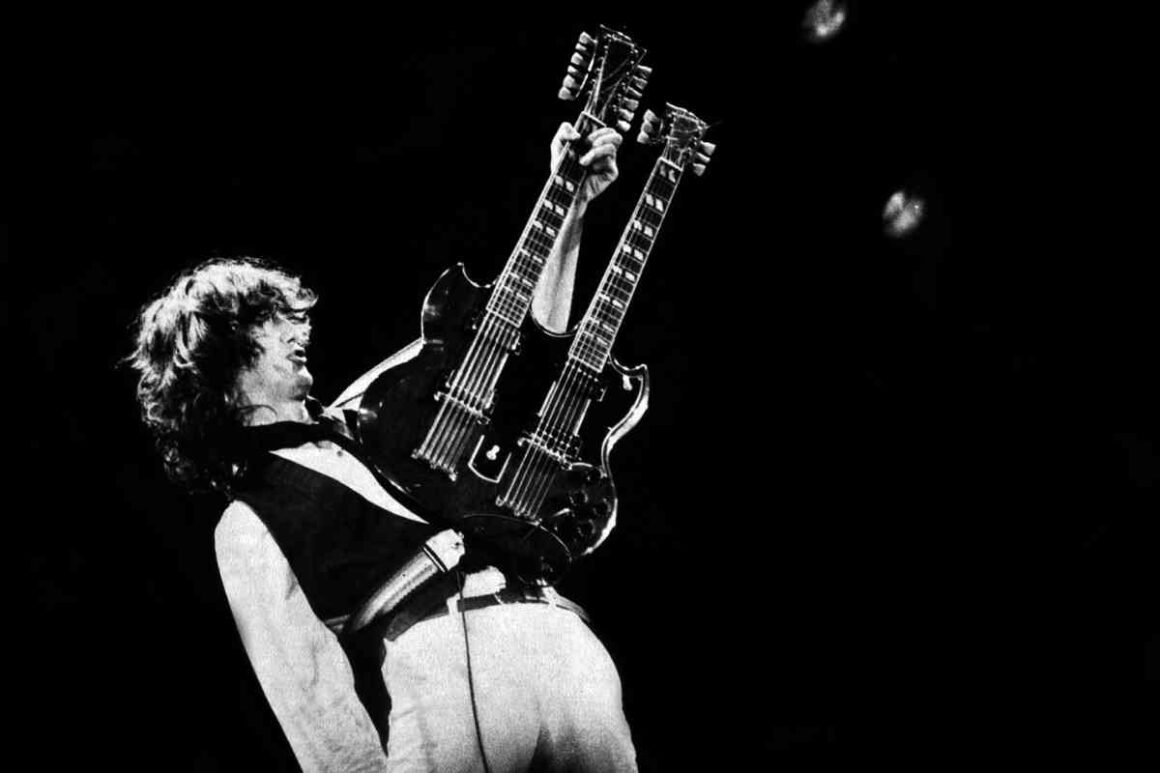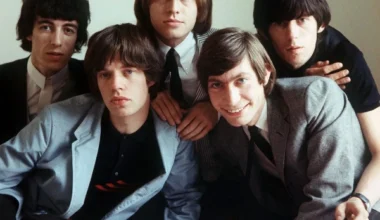There’s a compelling case to be made for the double-act that every great band needs. Musicians such as Paul McCartney and John Lennon, Mick Jagger and Keith Richards, and Morrissey and Johnny Marr effectively support this point. Focusing on the classic rock era, we can safely say that Jimmy Page and Robert Plant of Led Zeppelin represent another assertive double act it produced, apart from The Beatles and their London counterparts, The Rolling Stones.
It is evident that for a pair to work well together, there must be a core of yin and yang involved. The components have some overlap but, more importantly, are largely at odds. This theme has frequently shown up in the best musical duos, ranging from personality traits to creative preferences. Both filling in each other’s gaps and the tension created by their divergent viewpoints producing brilliant creative sparks.
There are numerous instances in which Jimmy Page and Plant embody this contradiction. There are a few notable differences. Such as the guitarist’s upbringing in a leafy Surrey estate and the frontman’s location in the industrial Black Country. Additionally, the former was in high demand as a session musician prior to Led Zeppelin. While the latter was making his name on the West Midlands circuit. Disparities in interests and character have also been noted.
Nevertheless, a great deal unites the two in spite of their differences, and much like an artistic yin and yang. This produces a powerful interconnectedness and a brilliant sum of its parts. They founded their relationship on a puristic love of blues and rock ‘n’ roll as well as a desire to continue developing as artists.
Their shared objective, stemming from Page’s initial idea for the sound of Led Zeppelin, unified them. However, their individual interpretations of this objective may have varied due to their intrinsic uniqueness as human beings. This restlessness within the group propelled them forward and enabled them to keep going. Perhaps more importantly, the constant pressure forced The Beatles to adjust. This was so strong that it even forced Lennon and McCartney off their pedestal because their own differences were becoming too obvious to ignore and The Beatles limped to the finish line.
Of course, things haven’t always been easy between Page and Plant. Within the group, there is a distinct division between Page and bassist John Paul Jones and frontman and drummer John Bonham. Furthermore, Page was absent at the funeral following the untimely death of Plant’s son Karac.
Even though Bonham’s death in 1980 marked the end of Led Zeppelin, Page and Plant’s reunion as a double act in the early 1990s surprised everyone. This culminated in the 1998 Steve Albini-recorded Walking into Clarksdale. Jones, who was left out, was also taken aback by this unexpected reunion. Later, for the renowned Ahmet Ertegun Tribute Concert in 2007, the remaining members of “Communication Breakdown” band came back together. This demonstration unequivocally showed that the group and pair still have it. However, since then, Plant has consistently expressed his unwillingness to rejoin the group and was apparently content for them to experiment with other singers in his place.
In a 2012 interview with Rolling Stone, Page talked about his lengthy working relationship with Plant and what “draws” him in to the golden-haired master. Noting that the two are no longer collaborators, he discussed their mutual empathy and cited his friend’s outstanding vocals as evidence in the 1969 Led Zeppelin song “Baby I’m Gonna Leave You” cover.
“What is the quality in me that attracts him?” the guitarist clarified. Perhaps there isn’t any. since we’re not collaborating [laughs]. We shared empathy. I knew exactly how that song [from Led Zeppelin’s 1969 album] “Baby I’m Gonna Leave You” would turn out.
Plant’s guitar playing elevated the already evocative flamenco-esque vibe that Jimmy Page had created. He went on to describe how their differences brought them together, saying, “He produced an amazing, melancholy voice. In a group setting, the goal is to maximise each individual’s potential at that precise moment. We were able to extract some positive energy from one another.
Even though both men have achieved great success apart, there’s no denying that their combined strength is at its peak when they’re together. It is unlikely that they will ever release another joint album because of their respective circumstances. But the fact that they are so highly regarded even now speaks volumes about their significance. Many of their contemporaries are disappearing from the record. This enduring recognition underscores the lasting impact of their music.








